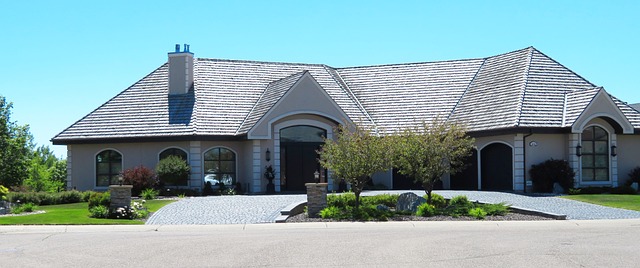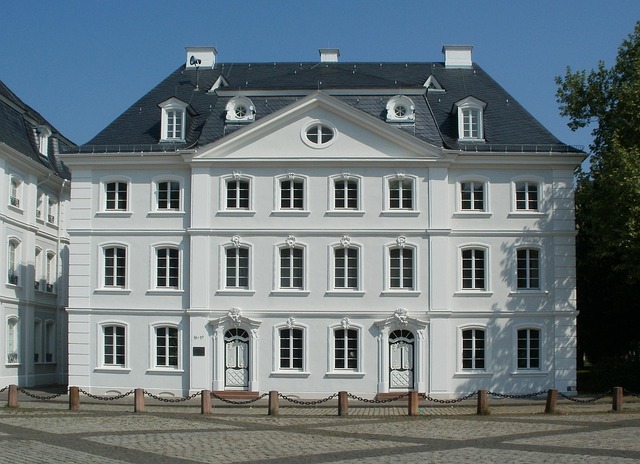In Singapore, choosing between an Executive Condominium (EC) and a Private Condominium (PC) involves understanding their unique eligibility requirements, tenure structures, and investment potential. ECs are designed for middle-income families, offering a pathway from public to private housing with government subsidies for eligible buyers, and the potential for capital gains after 10 years when they become PCs. They cater to those looking for spacious units and communal facilities within a community setting. PCs, on the other hand, are premium living options that come with high-end amenities and finishes suitable for a diverse range of residents, including young professionals and families seeking contemporary luxury and exclusivity. Both types of condominiums offer long-term investment opportunities, with ECs being particularly attractive due to their affordability, upgrade potential, and the possibility of transitioning into full private status. Prospective homeowners and investors should consider both the immediate lifestyle benefits and future market trends when deciding between an EC and a PC in Singapore's dynamic real estate environment.
navigating the real estate landscape in Singapore, prospective homeowners often ponder over the choice between an Executive Condominium (EC) and a Private Condominium (PC). This article demystifies the distinctions, outlines eligibility criteria, scrutinizes affordability factors, evaluates resale potential, and compares design and facilities of both ECs and PCs. By examining long-term benefits and tenure considerations, home seekers can make informed decisions tailored to their lifestyle and financial goals. Understanding the nuances between an EC and a PC is crucial for anyone looking to invest in property within this vibrant city-state.
- Understanding the Distinctions between Executive Condominium (EC) and Private Condominium (PC) Ownership
- Eligibility Criteria: Who Can Apply for an EC vs a PC
- Affordability Factors: Cost Comparisons of ECs and PCS in Singapore
- Resale Potential and Liquidity: A Comparative Analysis of ECs and PCs
- Design and Facilities: What to Expect from ECs and PCs in Terms of Amenities and Living Spaces
- Long-Term Benefits and Tenure Considerations for ECs and PCs
Understanding the Distinctions between Executive Condominium (EC) and Private Condominium (PC) Ownership

In the Singaporean real estate market, the terms ‘Executive Condominium (EC)’ and ‘Private Condominium (PC)’ often come up when discussing residential property options. Both EC and PC offer a fusion of the benefits of condominium living with the autonomy of ownership. An Executive Condominium is a hybrid housing model designed to cater to the middle-income group, offering a unique balance between public and private housing. Unlike Private Condominiums, ECs have restrictions on ownership; Singaporean citizens or permanent residents can own these units for a period, after which they may transition into private property status. This tenure structure is a key distinction that influences the eligibility criteria for buyers.
On the other hand, Private Condominiums are open to all buyer categories, including foreigners, and do not come with such maturity provisions. The EC ownership scheme is designed to provide an upgrade path for residents, allowing them to sell their units on the open market once they satisfy the criteria, typically after a set number of years. This feature makes ECs a financially attractive option for those looking to reap potential capital gains over time. Additionally, while both EC and PC offer a myriad of facilities and amenities, the former often benefits from certain subsidies and grants if purchased during the initial eligible years, making it an even more compelling choice for eligible applicants. Prospective homeowners must weigh these differences carefully to determine which type of condominium aligns with their long-term housing goals and financial strategies.
Eligibility Criteria: Who Can Apply for an EC vs a PC

When considering the acquisition of a residential unit in Singapore, distinguishing between an Executive Condominium (EC) and a Private Condominium (PC) is crucial for potential homeowners. The eligibility criteria for these two housing options differ significantly, guiding buyers towards the most suitable choice based on their circumstances.
For an EC, eligible applicants must meet the following criteria: they must be Singapore citizens who have not previously owned a flat from the Housing & Development Board (HDB), or if they have, it has been sold at least five years before the application for an EC. Additionally, their monthly household income should not exceed SGD14,000. Joint applicants, such as married couples, are also subject to these income limits. Meanwhile, foreigners are not eligible to purchase EC units directly; they can only do so if it is being acquired as part of a divorce settlement.
In contrast, Private Condominiums are open to a broader range of applicants. Both Singapore citizens and permanent residents can purchase PCs without any prior HDB flat ownership restrictions. Foreigners are also permitted to buy into PCs, often with fewer restrictions compared to ECs. The income ceiling for foreigners purchasing PCs is typically higher than for ECs, providing more flexibility for high-income earners or investors. With these distinct eligibility criteria, prospective buyers must assess their situation carefully before deciding between an Executive Condominium and a Private Condominium. Understanding these differences is essential for making an informed decision that aligns with one’s long-term housing goals and financial status in Singapore’s vibrant property market.
Affordability Factors: Cost Comparisons of ECs and PCS in Singapore

In Singapore’s dynamic property landscape, discerning between an Executive Condominium (EC) and a Private Condominium (PC) requires a nuanced understanding of affordability factors. Prospective homeowners often weigh the cost implications of both housing types due to their distinct tenure and eligibility criteria. Executive Condos are hybrid properties designed for Singaporeans who can afford a higher grade of living but do not necessarily qualify for a private condo yet. They offer a stepping stone, with the added benefit of being eligible for certain CPF housing grants, making them an attractive option for upgraders. The pricing of ECs is influenced by various factors, including land tenders, development costs, and market demand. Conversely, Private Condos (PCs) are available for purchase by all without such restrictions, often positioned as premium living spaces. The cost of PCs can be significantly higher, reflecting their exclusive status and the prime locations they frequently occupy. Both ECs and PCs are subject to the prevailing market conditions, but the affordability aspect is more pronounced in ECs due to the government’s subsidies and grants, which can make them a more cost-effective option for eligible applicants. When considering affordability, it’s crucial to analyze not just the initial purchase price but also the ongoing maintenance fees, potential resale value, and the availability of financial schemes that could assist with the acquisition of these properties. This comparative analysis helps potential buyers make informed decisions tailored to their financial situation and long-term goals.
Resale Potential and Liquidity: A Comparative Analysis of ECs and PCs

When considering the resale potential and liquidity of property in Singapore, both Executive Condominiums (ECs) and Private Condominiums (PCs) present unique opportunities and challenges for investors and homeowners alike. ECs, which are a hybrid housing type designed to offer a pathway to public housing before transitioning to private property status after a certain period, have seen an increase in popularity due to their affordability and the potential for upgrading. Upon maturing to become fully private properties after five years, ECs often appreciate in value, making them an attractive investment for those looking to resell. The resale market for ECs has traditionally been robust, with many units changing hands as residents move on to other types of housing. This transition can lead to a liquid market for these properties, especially in areas with strong demand and where the development has established a track record of appreciation.
In contrast, Private Condominiums offer a more established market with a longer history and a diverse range of options across various locales. PCs are fully private from the outset, which often translates to higher entry costs compared to ECs. However, their resale potential is underpinned by their location, amenities, and the overall condition of the property. The liquidity of PCs tends to be high in prime districts or in areas with strong economic growth and population inflows. Buyers are drawn to these properties for their prestige, larger sizes, and premium finishes, which can command higher resale prices. Both ECs and PCs require a long-term perspective for investors, as the property market can be subject to cyclical trends influenced by economic conditions, interest rates, and government policies. Investors should conduct thorough research and consider their investment horizon when deciding between an EC or a PC, as both offer distinct benefits in terms of resale potential and liquidity within Singapore’s dynamic real estate landscape.
Design and Facilities: What to Expect from ECs and PCs in Terms of Amenities and Living Spaces

When considering a residential property in Singapore, discerning homeowners often compare the offerings of an Executive Condominium (EC) versus a Private Condominium (PC). Both ECs and PCs provide a suite of amenities and thoughtfully designed living spaces, but there are distinctions that can influence your decision.
Executive Condos, designed for middle-income families, offer a range of facilities that cater to communal living and recreational activities. Residents can expect a gymnasium, swimming pool, BBQ pits, and children’s playgrounds as standard features in most EC developments. The design often includes spacious units with larger balconies or terraces, reflecting the needs of growing families. Facilities are typically well-maintained and designed to encourage social interaction among residents.
Private Condos, on the other hand, cater to a broader market segment, including both young professionals and families. These condos often boast state-of-the-art amenities, sometimes with a greater emphasis on luxury and exclusivity. Expect high-end fitness centers, infinity edge pools, sky gardens, and private entertainment areas within gated communities. The living spaces in PCs are usually tailored for modern lifestyles, offering contemporary designs, smart home features, and premium finishes that prioritize both comfort and aesthetics. Both ECs and PCs aim to enhance the quality of life for their residents, but the scale, variety, and exclusivity of amenities may differ, reflecting the target demographics and intended lifestyle of each residence type.
Long-Term Benefits and Tenure Considerations for ECs and PCs

When considering long-term benefits in residential property investments, both Executive Condominiums (ECs) and Private Condominiums (PCs) present unique advantages for potential homeowners or investors. Executive Condos cater to the needs of upgrading from public to private housing with a more affordable entry point compared to traditional private condos. Upon reaching the 10th year anniversary since TOP (Temporary Occupation Permit), these ECs transition into Private Condominiums, offering residents the same rights as those living in PCs. This transition enhances the long-term value of EC properties, making them an attractive option for those looking to upgrade or resell after satisfying the minimum occupancy period.
In terms of tenure considerations, ECs and PCs differ significantly. Executive Condominiums are hybrid housing designed to assist middle-income families in transitioning from public to private housing. They come with a maximum lease term of 99 years, similar to most Private Condos. However, the initial years are subject to certain occupancy restrictions, as only Singapore Citizens or Permanent Residents can own an EC for the first five years from the date of obtaining the TOP. Post this period, ECs can be owned, sold, and leased out like any other private property. This unique tenure structure makes ECs a versatile option for those looking for a home that accommodates lifestyle changes over time, while also potentially offering capital appreciation benefits as they transition into Private Condos.
When considering the path to condominium ownership in Singapore, discerning buyers face a key decision between an Executive Condominium (EC) and a Private Condominium (PC). This article has delineated the distinctions, from eligibility criteria and affordability factors to resale potential and long-term benefits. ECs offer a unique blend of public and private housing benefits, catering to Singaporeans who aspire to higher living standards without the full price tag of a PC. Prospective residents should weigh these options carefully, considering the design, facilities, and future value each offers. Ultimately, the choice between an EC and a PC hinges on individual lifestyle preferences, financial planning, and the long-term vision for your home. With this comprehensive overview, potential homeowners are equipped to make informed decisions that align with their aspirations and financial strategies in the vibrant property market of Singapore.



